Search
Remove Ads
Advertisement
Summary 
Loading AI-generated summary based on World History Encyclopedia articles ...
Search Results
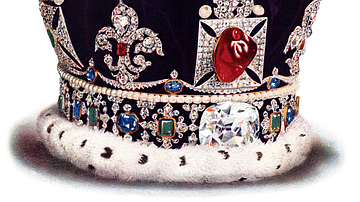
Definition
British Crown Jewels
The Crown Jewels of the monarchy of the United Kingdom of Great Britain and Northern Ireland are today kept in the Tower of London and date mostly to the 17th century, with a few later sparkling additions such as the Koh-i-Noor and Cullinan...
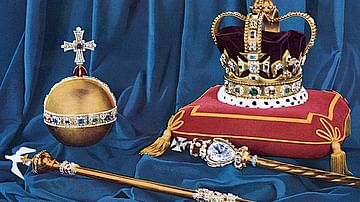
Image
British Crown Jewels
A few items from the British Crown Jewels. The St. Edward's Crown (1661), the Sovereign's Sceptre with the Cullinan I diamond (1685, diamond added in 1911), the Sovereign's Orb (1661), Queen Mary II's Sceptre with dove (1689) and the Sovereign's...

Article
Colonel Blood & the Theft of the Crown Jewels
Colonel Thomas Blood, a known conspirator, made an infamous but unsuccessful attempt to steal the British Crown Jewels from the Tower of London in 1671. Disguised as a clergyman, Blood and his gang swiped the royal regalia from under the...
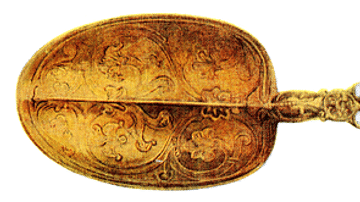
Image
Coronation Spoon, British Crown Jewels
The Coronation Spoon of the British Crown Jewels. The spoon is the only object in the regalia which survives from the 12th century CE. The gold spoon is used for anointing the sovereign during their coronation ceremony. It measures 26.7 cm...
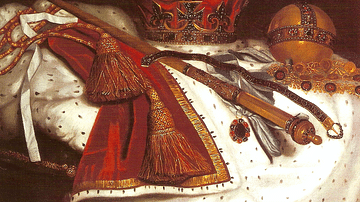
Image
Pre-Civil War British Crown Jewels
A painting of the British Crown Jewels used before the English Civil Wars (1642-51). These were broken up and sold off following the execution of Charles I of England in 1649.
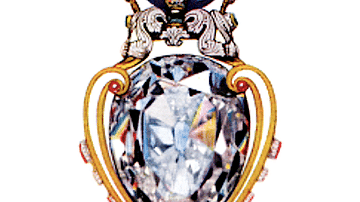
Definition
Cullinan Diamond
The Cullinan Diamond was discovered in Transvaal, South Africa in 1905 and presented as a birthday gift to Edward VII of England (r. 1901-1910) by the Transvaal Government. It weighed well over 3,000 carats, making it the largest gem-quality...
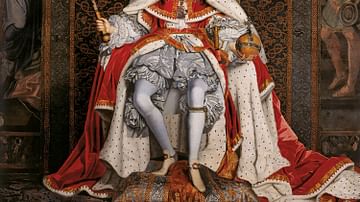
Article
The Coronation Ceremony of the British Monarchy
The coronation ceremony of the British monarchy as we know it today involves many elements that have been a part of the pageantry ever since the 11th century. Such features of the ceremony carried out in Westminster Abbey since 1066 have...
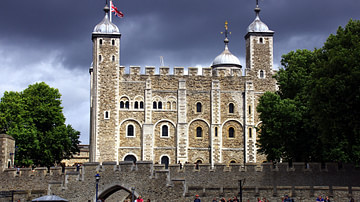
Definition
Tower of London
The Tower of London is a castle located in London alongside the River Thames which was first built by William the Conqueror from c. 1077 and significantly added to over the centuries. Often referred to in England as simply 'the Tower', it...
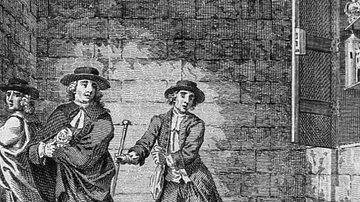
Image
Thomas Blood Stealing the Crown Jewels
A 1793 illustration by T. Simpson showing Colonel Blood and his gang stealing the British Crown Jewels from the Tower of London in 1671. Blood was soon captured and the regalia returned.
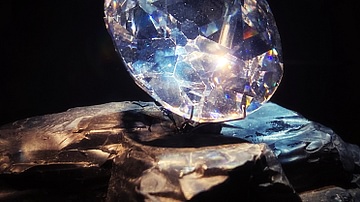
Definition
Koh-i-Noor
The Koh-i-Noor diamond (also Koh-i-Nur or Kūh-e Nūr) is one of the largest and most famous cut diamonds in the world. It was most likely found in southern India between 1100 and 1300. The name of the stone is Persian meaning ‘Mountain of...